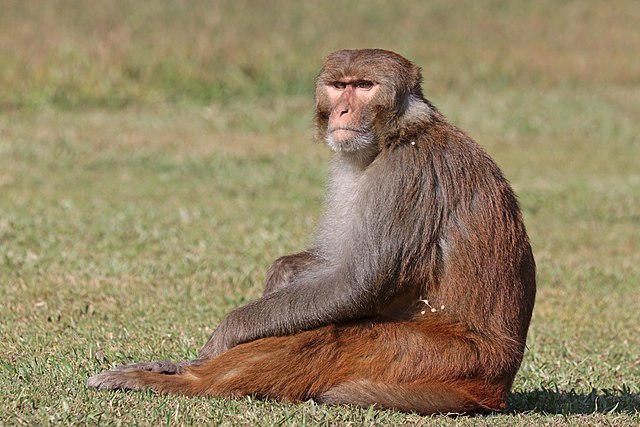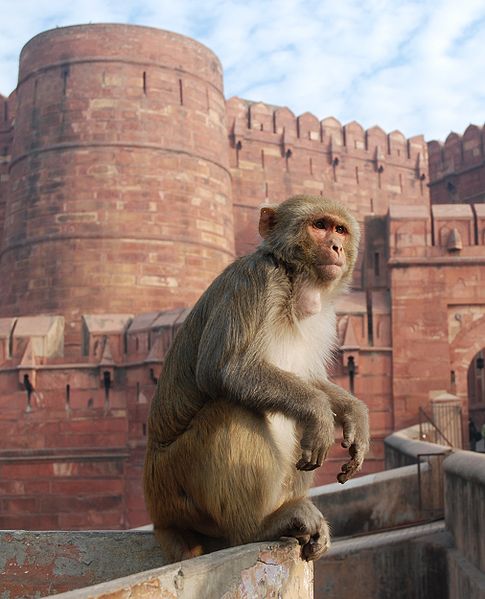Harry Frederick Harlow was an American psychologist best known for his maternal-separation, dependency needs, and social isolation experiments on rhesus monkeys, which manifested the importance of caregiving and companionship to social and cognitive development. He conducted most of his research at the University of Wisconsin–Madison, where humanistic psychologist Abraham Maslow worked with him for a short period of time.
Harlow, c. 1968
Monkey clinging to the cloth mother surrogate in fear test
Graves of Harlow and Margaret Kuenne at Forest Hill Cemetery
Harlow exclusively used rhesus macaques in his experiments.
The rhesus macaque, colloquially rhesus monkey, is a species of Old World monkey. There are between six and nine recognised subspecies that are split between two groups, the Chinese-derived and the Indian-derived. Generally brown or grey in colour, it is 47–53 cm (19–21 in) in length with a 20.7–22.9 cm (8.1–9.0 in) tail and weighs 5.3–7.7 kg (12–17 lb). It is native to South, Central, and Southeast Asia and has the widest geographic range of all non-human primates, occupying a great diversity of altitudes and a great variety of habitats, from grasslands to arid and forested areas, but also close to human settlements. Feral colonies are found in the United States, thought to be either released by humans or escapees after hurricanes destroyed zoo and wildlife park facilities.
Image: Rhesus macaque (Macaca mulatta mulatta), male, Gokarna
Image: Female and juvenile rhesus macaque at Galtaji, Jaipur, Rajasthan, India
Rhesus macaque by the Agra Fort, Uttar Pradesh, India
Mother and child rhesus macaque in Nepal








